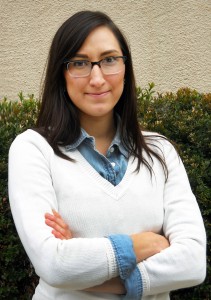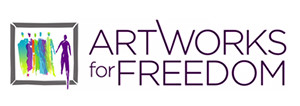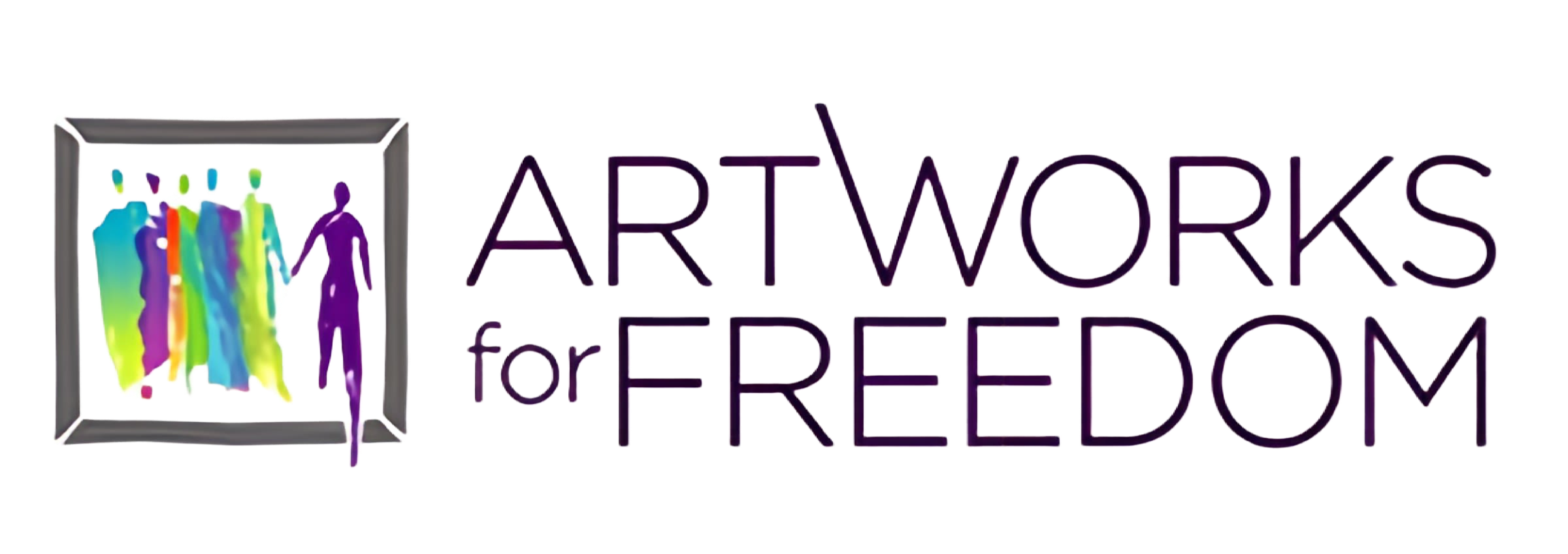Volunteer Crystal Cason Supports ArtWorks Design
January is National Slavery and Human Trafficking Prevention Month! To commemorate it, we want to show that everyone can make a difference by highlighting people who use their talents to volunteer or raise awareness of human trafficking in their everyday lives. Today we’re featuring our very own volunteer Crystal Cason in our first Artworks volunteer spotlight!
 CRYSTAL CASON is an ArtWorks for Freedom volunteer who proves everyone can contribute their own creative gifts to help end human trafficking.
CRYSTAL CASON is an ArtWorks for Freedom volunteer who proves everyone can contribute their own creative gifts to help end human trafficking.
As a communications professional with a passion for visual storytelling and creative reporting, Crystal regularly provides graphic design support for ArtWorks for Freedom awareness campaigns. Recently she designed graphic panels for the mural installation “What You See is Not Who I Am,” that was exhibited on college campuses in Atlanta during the Freedom Expressions ATL campaign last November.
Currently living in Washington, D.C., and working for the international development consulting firm EnCompass LLC, Crystal became aware of human trafficking while a teenager, but wasn’t fully aware of the magnitude of the problem until she began to study human rights issues as a graduate student at Webster University. It was while earning her master’s degree in global international relations that Crystal saw the effects of human trafficking up close and decided to become actively involved in anti-trafficking efforts.
In our first ArtWorks volunteer spotlight, Crystal shares why fighting human trafficking is important to her and something everyone should get involved in.
How did you first learn about human trafficking and why did you decide to start volunteering your time to address it?
I saw a presentation on human trafficking when I was younger, maybe in high school, so it was in my consciousness, but I was really disconnected from it. I knew it existed somewhere in the world, but I don’t think it was until I was in graduate school that I was confronted with it in a much more present way. That’s when I took it upon myself to become educated on the issue.
In grad school I was studying at Webster University, and my program was designed so that each semester I studied on a different campus in a different country. I studied across Europe and Southeast Asia. It was while I spent a semester studying outside of Amsterdam in the Netherlands that I was confronted with it in a much more visual way. Seeing the red light district and talking to a classmate who was involved in human trafficking work made it feel much more present than it ever had.
When did you learn about ArtWorks for Freedom?
I work in Washington, D.C., for EnCompass, an international development contractor. I was talking to the former CEO, Laverne Webb, about my general interest in photography and also human trafficking. Laverne knew ArtWorks’ founder Kay Chernush through the women of Peace Corps legacy, so she put me in touch with Kay.
I connected with Kay as an artist and it was inspiring to see that she translated using art into activism. I had not encountered that idea—that art could be used in this effort against human trafficking—until I saw Kay doing it. That moment for me was so powerful because I don’t feel like a technical expert on this issue by any means, so it was nice to see that you can bring what you have to the table and you don’t have to necessarily be a technical expert to get involved.
What have you learned about human trafficking since volunteering for ArtWorks?
I appreciate how ArtWorks tries to localize the issue by tying it to the local communities where awareness campaigns are being held. ArtWorks has opened my eyes to the fact that human trafficking is all around us and it is much more ubiquitous here even though we may not see it as much as in other places.
When people learn about human trafficking they are often overwhelmed by how big of a problem it is. How do you think people can overcome that?
The first thing is to do some research. It’s important to start doing your homework. Polaris was helpful for me early on. I think they do a good job of trying to bring it down to what you as an individual can do. I know they provide opportunities to support legislation and sign petitions. There are other organizations, of which ArtWorks is one, that help you become an activist in your own community. For instance, you can contact ArtWorks and get videos and other materials to host an awareness party and start at the local level.
It can feel very overwhelming but it’s important to remember that we all have a voice…and not to discount that.
What unique skills or gifts do you think you bring to the anti-human trafficking movement? Why do you think those are important?
I think the best thing is the will—caring. I think it’s more about just wanting to do something and looking for ways. I am a communications specialist; I do design work and photography. It’s empowering to find a way to bring those skills to an issue that I care about. I don’t think there’s one thing that “uniquely” qualifies people to work on this issue…it’s just your will to do something and bring your talents to bear. If everyone contributes something, we can tackle the problem. The biggest thing lacking is the will power.
Why is the fight against human trafficking something that everyone should be involved in?
Neutrality is not really an option. Even if you’re a person just going about your life, chances are that the products you use, the clothes you wear and the technology you own are all touched by human trafficking. You’re either fighting against the tide or contributing to the perpetuation of the problem, even if by no fault of your own. We all have power. One of the ways we do have power is as consumers. We have the power to say no by not giving our money to companies that use these kinds of practices. It’s going to be inconvenient, but I am encouraged by the fact that information is becoming more readily available. My hope is that the more people are willing to become inconvenienced, the more attention this issue can get and the more quickly change can happen.
***
Inspired by Crystal’s story to learn more about how you can help end human trafficking? Crystal recommends these websites to start learning more about the issue:
1. Test your slavery footprint @ slaveryfootprint.org
2. Track your favorite brands @ free2work.org
3. Write to congress @ Polaris Project




Share this entry